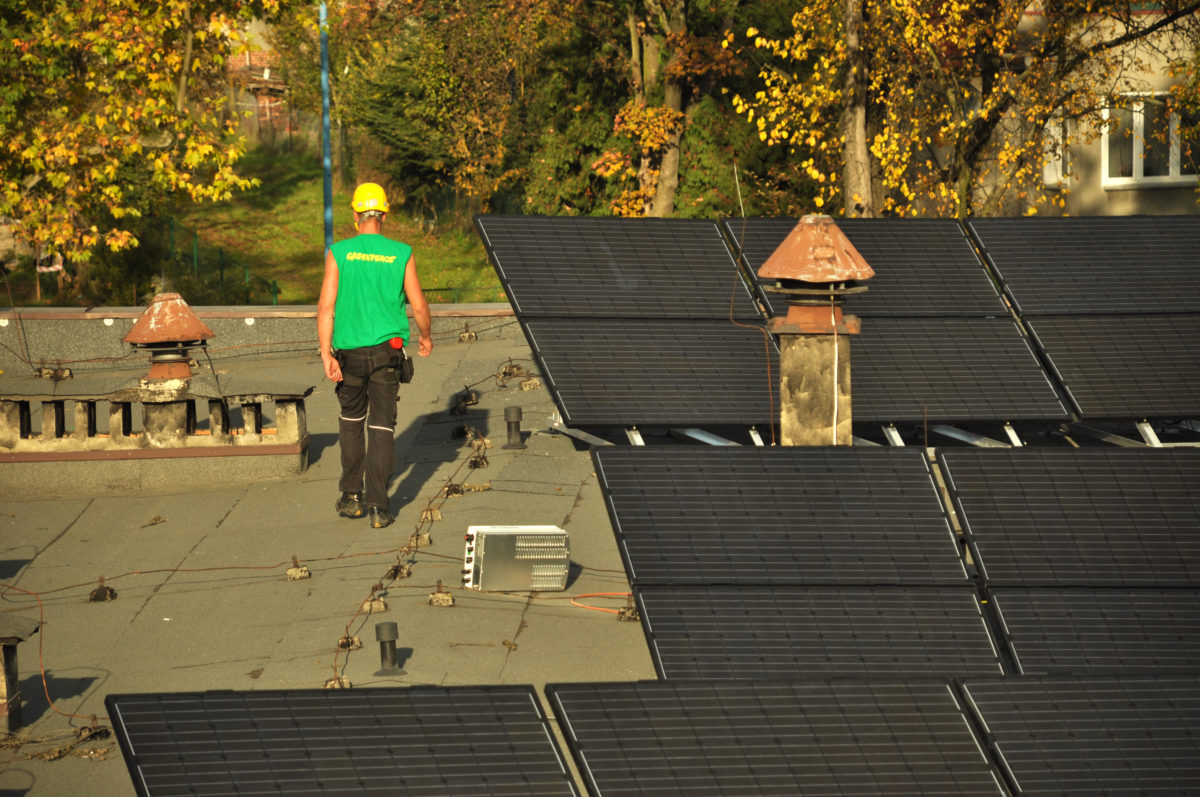Looking to underpin Poland’s energy transition, the European Commission (EC) has approved under EU State aid rules a renewable energy scheme, and a reduced levy to finance the scheme for energy-intensive users.
The scheme, with a total budget of PLN 40 billion (around €9.4 billion), will provide state support to producers of electricity from renewable energy, which will be selected by means of competitive auction.
The first two rounds took place in December 2016 and June 2017, and additional auctions will be organized until 30 June, 2021.
Financed by a surcharge levied on electricity consumers, the scheme will be applied to small installations with a capacity of up to 500 kW, which can benefit from a feed-in tariff, and installations with a capacity of more than 500 kW, which will receive a premium on top of the market price of electricity.
According to the EC, beneficiaries will only receive the premium if, in the coming years, the market price of electricity is below the bidding price submitted in the auction, in order to help them compensate for costs that cannot be recovered from selling electricity in the market, and so obtain a reasonable return on investment.
“We want to make progress towards green energy for the sake of our environment, but also for European economic growth. The Polish support scheme will increase the share of green energy in Poland's energy mix and help the country's energy transition. It will also preserve the global competitiveness of companies that are heavily energy dependent,” said Commissioner Margrethe Vestager, in charge of competition policy.
Financing secured
Chinese vertically integrated solar firm ReneSola has announced that Sequoia Economic Infrastructure Income Fund had agreed to provide senior debt facility for the company’s 55 MW of projects in Poland, each with a capacity of 1 MW.
According to ReneSola, the projects, all of which come under Poland's Contract for Difference (CFD) regime and are eligible for a 15-year guaranteed tariff, will be completed in three phases.
Popular content
The first 14 MW are under construction, and are expected to reach commercial operation in the first quarter of 2018, whereas the construction for the remaining 41 MW of projects is slated for completion in the third quarter 2018.
“We are excited to partner with Sequoia Economic Infrastructure Income Fund. This financing facility reinforces our confidence in the potential of the downstream project development market in Poland. It also demonstrates the confidence that the capital markets put in our ability to successfully develop projects in the region. We look forward to further supporting solar deployment in Poland and other emerging markets,“ said Xianshou Li, Chairman and CEO of ReneSola.
Earlier this year in July, following the second auction for PV projects up to 1 MW, the Chinese firm stated that it was awarded 42 MW of projects, eligible for a 15-year guaranteed tariff of PLN 385-392/MWh. The projects are due to be connected to the grid between Q2 and Q3 of 2018.
Lagging behind
According to renewable energy consultancy Ecofys, Poland is poised to miss its 2020 renewable energy target of 15%, as even under the most favorable scenario provided in the consultancy’s report, the country would be able to cover as much as 13.8% of its energy demand with renewables.
Following on the largest growth of the Polish solar market seen in 2016 with 94 MW of new PV capacity online, placing the country’s cumulative installed PV power at 192 MW, 2017 looked even more promising with the announced 150 MW auction for PV and wind projects above 1 MW.
In November, however, the Polish government decided to cancel the remaining tenders for 2017, including the 150MW auction, due to some changes relating to EU state aid rules that had be done to the country’s Renewable Energy Act.
The government has thus far only supported solar projects up to 1 MW through two previous auctions, held in December 2016 and in June of this year, as well as its green certificate scheme, which expired a few years ago.
This content is protected by copyright and may not be reused. If you want to cooperate with us and would like to reuse some of our content, please contact: editors@pv-magazine.com.



By submitting this form you agree to pv magazine using your data for the purposes of publishing your comment.
Your personal data will only be disclosed or otherwise transmitted to third parties for the purposes of spam filtering or if this is necessary for technical maintenance of the website. Any other transfer to third parties will not take place unless this is justified on the basis of applicable data protection regulations or if pv magazine is legally obliged to do so.
You may revoke this consent at any time with effect for the future, in which case your personal data will be deleted immediately. Otherwise, your data will be deleted if pv magazine has processed your request or the purpose of data storage is fulfilled.
Further information on data privacy can be found in our Data Protection Policy.